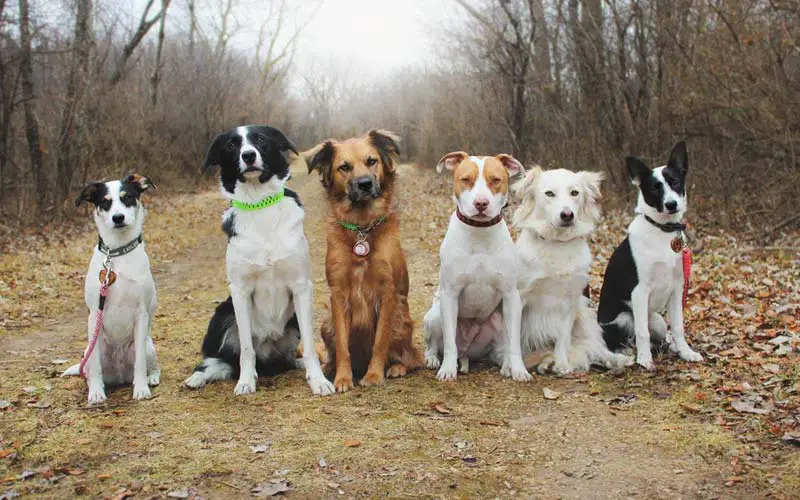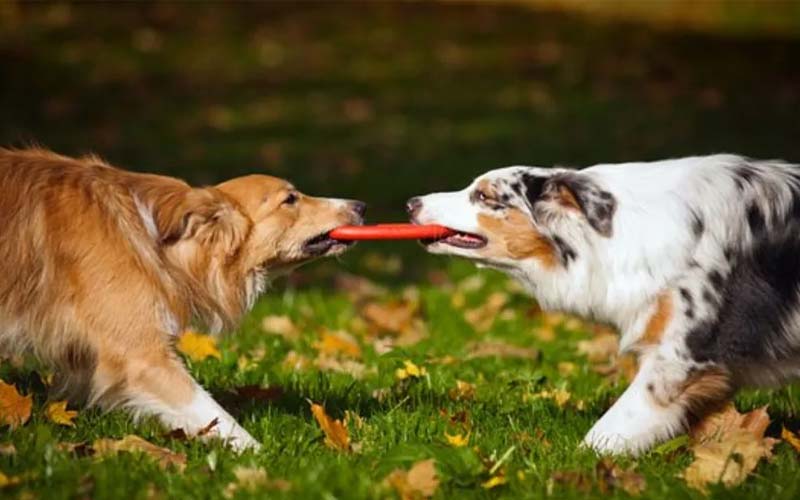Having more than one dog can be a rewarding and enriching experience for both you and your furry friends. However, it also comes with its own set of challenges and responsibilities. How do you ensure that your dogs get along well, have their individual needs met, and follow a consistent routine? In this article, we will share some practical tips for managing a multi-dog household and creating a harmonious and happy environment for your pack.

1. Setting Up Your Home for Multiple Dogs
One of the first steps to managing a multi-dog household is to set up your home in a way that accommodates the needs and preferences of your dogs. Here are some things to consider:
1.1 Creating Designated Spaces
Each dog should have their own designated space where they can rest, relax, and feel safe. This could be a crate, a bed, a mat, or a corner of a room. Make sure that each space is comfortable, cozy, and has access to water and toys. You can also use gates, fences, or barriers to separate the spaces if needed. This will help your dogs have some privacy and avoid territorial disputes.
1.2 Dog-Proofing Your Home
Another important aspect of setting up your home for multiple dogs is to dog-proof it as much as possible. This means removing or securing any potential hazards, such as wires, cords, plants, chemicals, medications, or small objects that could be swallowed or choked on. You should also keep your valuables, such as shoes, clothes, or electronics, out of reach or in a locked cabinet. This will prevent your dogs from chewing, scratching, or damaging them.
2. Establishing a Routine for Your Pack
Dogs thrive on routine and consistency, especially when they live in a multi-dog household. Having a predictable schedule will help your dogs feel more secure, calm, and confident. It will also make your life easier and reduce stress and confusion. Here are some aspects of a routine that you should establish for your pack:
2.1 Feeding Schedule
Feeding your dogs at the same time every day will help them maintain a healthy weight, digestion, and metabolism. It will also prevent food aggression, which is a common problem in multi-dog households. You should feed your dogs in separate bowls and spaces, and monitor them closely while they eat. You should also remove any leftover food after they finish, and avoid giving them table scraps or human food.
2.2 Walking and Exercise Routine
Walking and exercising your dogs regularly will help them burn off excess energy, stay fit, and release stress. It will also provide them with mental stimulation, socialization, and bonding opportunities. You should walk and exercise your dogs at least once or twice a day, depending on their age, breed, and activity level. You can walk them together or separately, depending on their behavior and compatibility. You should also use leashes, harnesses, and collars that fit well and are comfortable for your dogs.

2.3 Potty Training and Consistency
Potty training your dogs and maintaining consistency is essential for a clean and hygienic home. You should designate a specific area in your yard or outside your home where your dogs can do their business. You should also take them out at regular intervals, such as after waking up, before and after meals, and before bedtime. You should praise and reward your dogs when they go potty in the right place, and avoid scolding or punishing them when they have accidents.
3. Maintaining Harmony Between Your Dogs
One of the biggest challenges of managing a multi-dog household is to maintain harmony and peace between your dogs. Dogs are social animals, but they also have their own personalities, temperaments, and preferences. Sometimes, they may not get along well, or they may have conflicts over resources, attention, or dominance. Here are some tips to help you maintain harmony between your dogs:
3.1 Supervised Playtime
Playtime is a great way to keep your dogs entertained, engaged, and happy. It can also strengthen their bond and improve their communication skills. However, playtime can also turn into a fight if not supervised properly. You should always monitor your dogs when they play, and intervene if you notice any signs of aggression, such as growling, snarling, biting, or chasing. You should also provide enough toys for your dogs, and rotate them frequently to prevent boredom and possessiveness.
3.2 Addressing Dog-to-Dog Conflict
Despite your best efforts, your dogs may still have occasional conflicts or disagreements. This is normal and natural, as long as they are not frequent or severe. You should never let your dogs fight it out, as this can lead to serious injuries or trauma. You should also never yell, hit, or punish your dogs, as this can make them more fearful or aggressive. Instead, you should calmly and firmly separate your dogs, and give them some time to cool off. You should also identify and address the root cause of the conflict, such as stress, anxiety, jealousy, or boredom.

4. Caring for Individual Needs
While managing a multi-dog household, you should not forget to care for the individual needs of each dog. Each dog is unique and has their own personality, preferences, and requirements. You should treat your dogs as individuals, and not as a group. Here are some ways to care for the individual needs of your dogs:
4.1 Age-Appropriate Activities
Your dogs may have different ages, and therefore different energy levels, abilities, and interests. You should provide them with age-appropriate activities that suit their physical and mental needs. For example, you can play fetch, tug, or chase with your younger dogs, and provide puzzle toys, treat dispensers, or snuffle mats for your older dogs. You should also adjust the duration and intensity of the activities according to your dogs’ age and health.
4.2 Addressing Medical Conditions
Your dogs may also have different medical conditions, such as allergies, arthritis, diabetes, or obesity. You should consult your veterinarian regularly and follow their advice on how to manage these conditions. You should also provide your dogs with the appropriate medication, supplements, diet, and exercise. You should also monitor your dogs for any signs of pain, discomfort, or distress, and seek immediate veterinary attention if needed.
Managing a multi-dog household can be challenging, but also rewarding and fulfilling. By following these tips, you can create a harmonious and happy environment for your pack, and enjoy the companionship and love of your furry friends.
